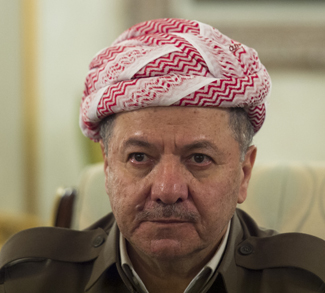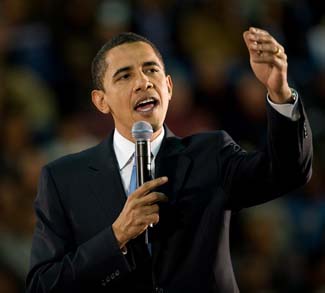Summary
The October 26th U.S. military strike inside Syria ostensibly targeting an alleged high-level al-Qaeda in Iraq operative is an indication of the Bush administration’s attempt to counter Syria’s growing influence via a show of force.
Analysis
Although the U.S. has not officially confirmed the attack, unofficially it has admitted to the helicopter assault that targeted an alleged high-level al-Qaeda in Iraq operative who ran a network used for smuggling foreign fighters into Iraq. The Syrians, meanwhile, claim that the attack killed a number of its civilians and is a clear violation of Syrian sovereignty and territorial integrity.
After months of continuous drops in violence in Iraq (including the lowest levels of confirmed American military deaths recorded in October), and with almost all Iraqi insurgent groups, particularly the Sunni militias operating along the Syrian-Iraqi border, turning against foreign fighters, it is rather odd that the U.S. would choose this moment to attack Syria. Foreign fighters entering Iraq through Syria were a much greater threat in previous years, and yet, despite years of protests, the U.S. rejected direct military adventure into Syrian territory.
Ironically, Syria recently massed thousands of its troops along the Syrian-Lebanese border in a self-purported attempt to prevent the smuggling of foreign fighters destined for Iraq into Syria from Lebanon.
The timing of the American attack, then, is curious.
Perhaps, after routing al-Qaeda in Iraq, the U.S. military decided that now was the ideal moment to break the network’s capacity to smuggle in fighters from Syria into Iraq, thus attempting to preserve the precarious security gains achieved recently.
Or, perhaps, buoyed by its own ability to sustain cross-border attacks into the sovereign territory of a neutral third-party, as in its continued excursions into Pakistan, the U.S. military re-assessed its own assessment of the potential fallout of violating Syrian territorial integrity and decided that Syria is not capable of meaningful retaliation at this time. Maybe, even, the U.S. is hoping to duplicate its success in convincing Pakistan’s government to up the ante against anti-American fighters based on their own soil as a counter to U.S. incursions.
Or, perhaps, fearful that an increasingly likely Obama administration will prefer a dénouement with Syria, as opposed to continued discord, the Bush Administration decided to launch the attack prior to the November 4th presidential election, lest their ability to do so during the last months of Bush’s lame duck presidency be curtailed.
Although some, or all, of these factors may have played a role, it appears that the determining factor in deciding to attack inside Syria is the growing influence of the latter in the region. Syria has recently joined the French sponsored Union for the Mediterranean, normalized relations with Lebanon by officially recognizing its smaller neighbour and announcing plans to trade diplomatic missions and, eventually, embassies, and seen its ally Hezbollah join a power-sharing unity government in Beirut. Syrian-backed Hamas also appears to have survived the American-Israeli embargo of the Gaza Strip, and, after negotiating a ceasefire with Israel, may soon expand its political presence into the West Bank.
In fact, just today, in recognition of Syria’s emergent clout in the region, thanks in no small part to the elimination of it’s competitor Saddam Hussein by the U.S., outgoing Israeli Prime Minister Ehud Olmert has announced that he will resume indirect peace talks with Syria during the remainder of his lame duck tenure.
It would appear, then, that the Bush Administration is attempting to counter Syria’s growing influence by directly putting the latter ‘on notice’ that, similar to last year’s Israeli attack on a suspected Syrian nuclear reactor, the U.S. military retains the capacity to hit Syrian targets.
Despite such a warning, Syria has simply to just wait out the Americans, reaping the benefits of the new Middle East hand the Bush administration has dealt it – once the U.S. leaves Iraq, Syria will emerge as one of the most powerful Arab nations in the Middle East.
Manjit Singh is a contributor to Geopoliticalmonitor.com



